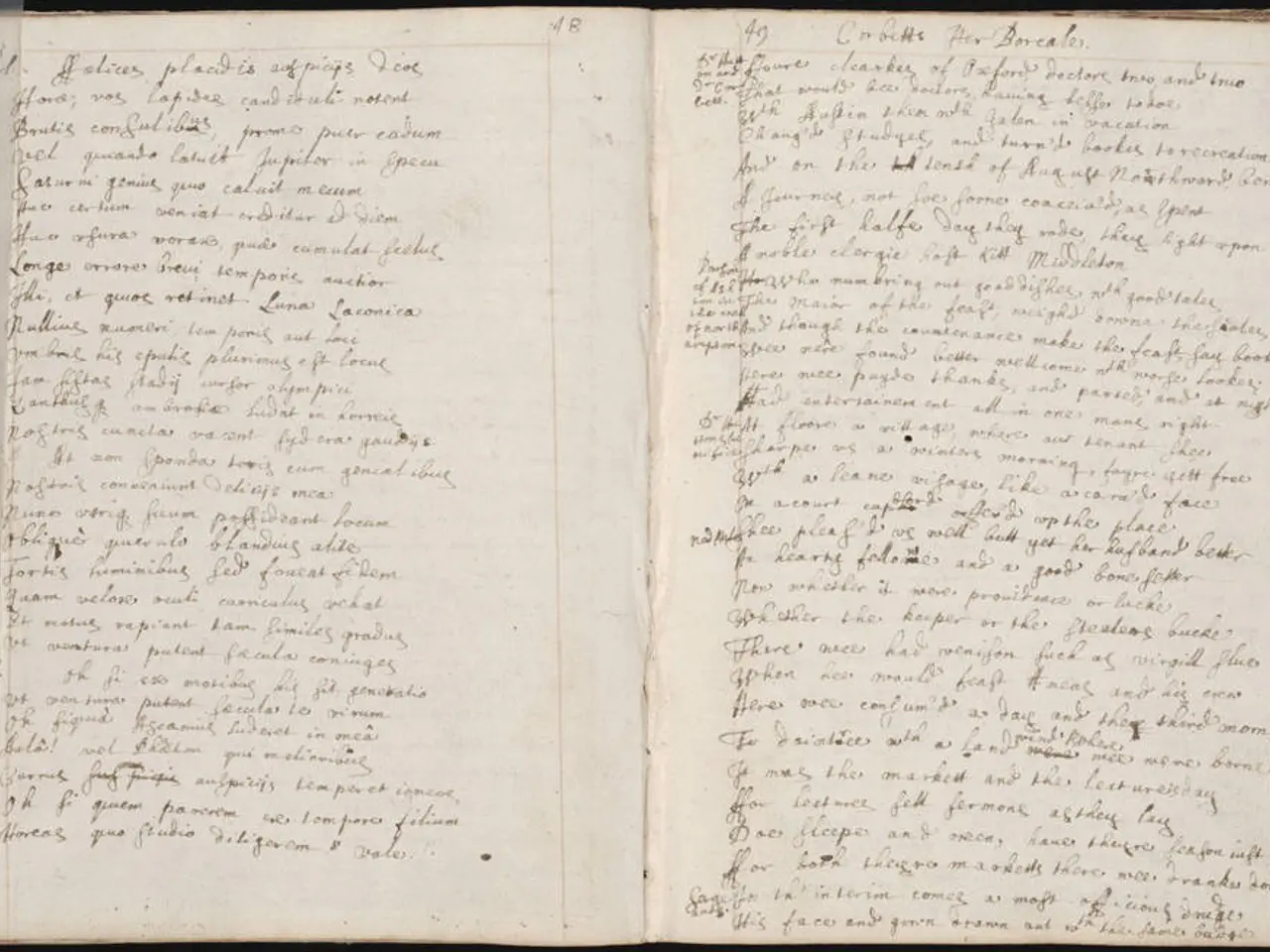Investigating the Debate Over Who Really Wrote Shakespeare's Works and the Use of Cryptographic Techniques
In the realm of literature, few mysteries have captivated scholars and enthusiasts as much as the Shakespeare Authorship Question. This enigma, which surrounds the true identity of the author of works attributed to William Shakespeare, has fueled a diverse range of perspectives for centuries.
Navigating this intriguing realm involves delving into a web of theories, controversies, and interpretations. Traditional authorship theories revolve around the debate on whether William Shakespeare was the sole author of his works. While advocates assert that Shakespeare penned the works, critics argue that the lack of concrete documentation linking Shakespeare to his writings raises suspicions about his authorship.
Contemporary scholarship, however, embraces a more inclusive approach to authorship studies. Scholars challenge the traditional belief in Shakespeare as the sole author and explore various theories, including conspiracy claims and cryptographic interpretations. Cryptographic enthusiasts analyze Shakespeare's works for patterns, anomalies, and hidden messages that may indicate encoded information.
Scholars scrutinize linguistic patterns, word choice nuances, and mathematical properties within Shakespeare's works to uncover potential cryptographic elements. Linguistic Patterns are analyzed for recurring structures, puns, acrostics, and numerical sequences that may serve as cryptographic devices. Comparison with Known Cryptographic Practices involves scrutinizing Shakespeare's works to identify parallels with established cryptographic methods used in literature.
Researchers unravel complex layers of meaning by exploring the significance of specific phrases, symbolic references, and structural anomalies that could indicate encrypted communications. The Analysis of Textual Evidence involves scrutinizing linguistic patterns, anomalies, and symbolic motifs within Shakespeare's plays and sonnets.
Modern Interpretations encompass a diverse range of perspectives that continue to shape contemporary discourse surrounding the enigmatic question of authorship. These include the integration of computational tools and statistical analyses to scrutinize linguistic patterns and stylistic features.
Alternative Authorship Theories present intriguing perspectives challenging the traditional attribution of Shakespeare's works. Proposed candidates include Edward de Vere, Christopher Marlowe, and Francis Bacon. The presence of alleged codes in Shakespeare's works has led to a reexamination of the Bard's writing style and possible hidden meanings.
However, no conclusive evidence of intentional cryptographic content has been universally accepted. Skeptics question the validity of such interpretations, emphasizing the importance of robust evidence and scholarly rigor in validating cryptographic claims within literary texts.
Unresolved Questions remain a focal point of intrigue and speculation within literary scholarship. These include the enigmatic nature of certain textual anomalies, the motives behind any potential cryptographic endeavors, the validity and significance of these alleged codes, and the broader implications of cryptographic theories on literary analysis.
The exploration of cryptographic theories in Shakespearean studies has not only redefined the traditional understanding of authorship but has also expanded the scope of literary analysis. The legacy of William Shakespeare endures, not just in his timeless words but also in the enduring enigma that surrounds his identity.
Read also:
- Setting Up and Expanding Operations at a Soil Blending Facility
- Regional University's healthcare system strengthened through collaborative partnership with Chancellor Dr Fiona Hill
- Reminisced University Trustee David M. Flaum as a 'fervent advocate' for the University and community
- Exploring the vanguard of eco-friendly advancements: mycorrhizal partnerships and internal plant organisms








